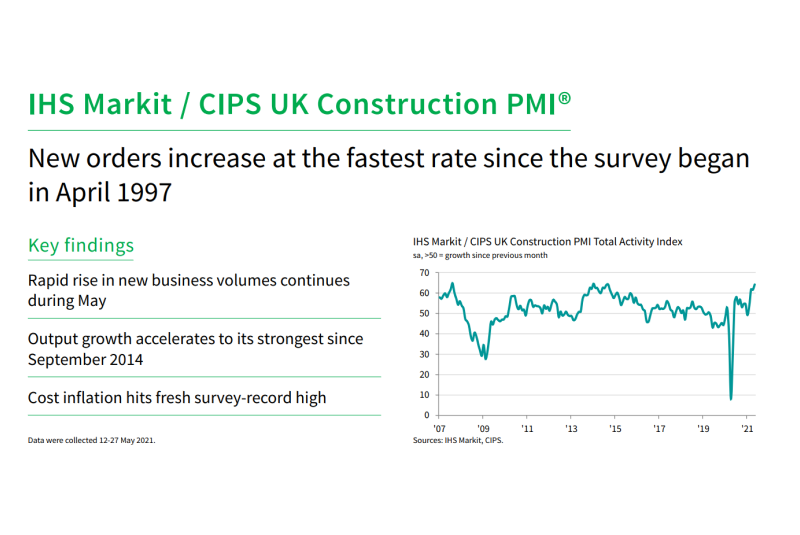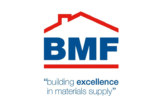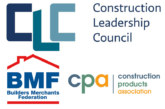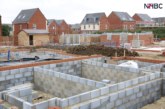
May PMI data indicated that the UK construction sector remained on a strong recovery path, with output growth reaching its strongest since September 2014. Moreover, new order volumes increased at the fastest pace since the survey began just over 24 years ago.
Input cost inflation was also at a survey-record high during May, reflecting a surge in demand for construction materials and severe supply shortages.
At 64.2 in May, up from 61.6 in April, the seasonally adjusted IHS Markit/CIPS UK Construction PMI Total Activity Index registered above the 50.0 no-change value for the fourth consecutive month and signalled the strongest rate of output growth for just under seven years.
House building (index at 66.3) was the best-performing category of construction activity in May, followed by commercial work (64.4). The latest increase in work on commercial projects was the steepest since August 2007, reflecting strong demand conditions following the reopening of customer-facing areas of the UK economy.
Civil engineering activity (index at 61.3) also increased sharply during May, although the pace of expansion eased slightly since the previous month.
The latest survey pointed to a rapid upturn in new business across the construction sector. Around 47% of the survey panel reported higher volumes of new work, while only 11% signalled a reduction. Construction companies attributed the surge in order books to strong demand for residential building work and high levels of confidence about the near-term economic outlook.
New project starts and a sustained recovery in construction workloads resulted in another marked rise in staffing numbers during May. The rate of job creation was the fastest since July 2014. Moreover, sub-contractor usage increased at a survey-record pace.
Mirroring the trend for order books, latest data indicated a steep upturn in purchasing activity across the construction sector. Some firms also noted that input buying had been boosted by efforts to build inventories in response to supply shortages.
Suppliers’ delivery times lengthened sharply in May, with the downturn in vendor performance the second-steepest since the survey began (exceeded only by that seen in April 2020). Stretched supply chains and steep rises in raw material prices contributed to a rapid increase in average cost burdens. The overall rate of input price inflation was the highest in just over 24 years of data collection.
Construction companies remain highly upbeat about their growth prospects for the next 12 months. Around 61% of the survey panel predict a rise in business activity, while just 8% anticipate a decline. Positive sentiment was mostly attributed to resurgent customer demand, alongside optimism about the UK economic outlook following the successful vaccine roll out.
Tim Moore, Economics Director at IHS Markit, which compiles the survey, said:
“UK construction companies reported another month of rapid output growth amid a surge in residential work and the fastest rise in commercial building since August 2007. Total new orders increased at the strongest rate since the survey began more than two decades ago, but supply chains once again struggled to keep pace with the rebound in demand.
“There were widespread reports citing shortages of construction materials and wait times from suppliers lengthened considerably in comparison to those seen during April. Imbalanced supply and demand led to survey record increases in both purchasing prices and rates charged by sub-contractors.
“Despite severe challenges with materials availability, construction firms remain highly upbeat about their near-term growth prospects. Nearly two-thirds of the survey panel forecast an increase in output during the year ahead, while only one-in-thirteen forecast a decline.”
Duncan Brock, Group Director at the Chartered Institute of Procurement & Supply, added:
“The construction sector continued its expansion programme with a phenomenal acceleration in growth and the strongest for seven years as new orders filled in at the fastest rate for almost a quarter of a century.
“Residential work was back in the top spot as house building rose at the quickest pace since August 2014, serving as an antidote to the recent scarcity in housing for lets or buy, and driven by consumer demand and a boost from the stamp duty holiday.
“Busy purchasing managers were under pressure to keep up and buying up at the fastest rate since April 1997, changing sourcing strategies to find depleting essential materials and stocking up just as supply chain problems continued to mount along with prices. With inflation for goods and raw materials at a 24-year high, companies will be concerned that much-needed profits will be eaten away as building projects take shape and could be held up by some of the longest delivery times on record.
“Skills shortages are also becoming a problem, with recruiters finding talented labour hard to find, as job creation was at robust levels and the threat of staffing cutbacks has become a distant memory.”
Related News:
UK Construction PMI for April 2021
UK Construction PMI for March 2021
UK Construction PMI for February 2021
UK Construction PMI for January 2021









